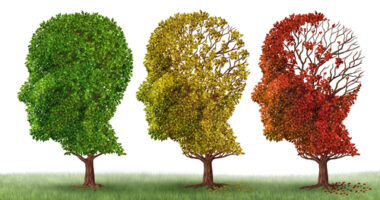Eisai, Geisinger to Test If AI Tool Can Identify Early Dementia Risk

Eisai has partnered with Geisinger to assess whether a machine-learning model can accurately identify people with cognitive impairment — which may suggest early signs of dementia.
Machine learning is a form of artificial intelligence (AI) that uses algorithms to analyze data, learn from its analyses, and then make a prediction.
The AI tool will be tested with Geisinger’s de-identified patient dataset, and if effective, it could be developed to support the early detection and staging of cognitive impairment and dementias, such as in Alzheimer’s disease.
“As two recognized leaders with unique expertise in Alzheimer’s disease and related dementias, Eisai and Geisinger are joining forces to utilize artificial intelligence to identify people at risk for developing dementia and potentially create tools that could be used in clinical care settings,” Alexander Scott, Eisai’s executive vice president of Integrity, said in a press release.
“Early and accurate diagnosis and treatment of these conditions can drastically improve outcomes and quality of life for both patients and caregivers,” said Glen Finney, MD, the director of Geisinger’s memory and cognition program and a board member of the Greater Pennsylvania Chapter of the Alzheimer’s Association.
The AI model, called Passive Digital Marker (PDM), was developed and tested by researchers at Purdue University and Indiana University with the aim of predicting dementia prior to disease onset in a general patient population.
The model was trained and tested using routine, electronic healthcare records of dementia and non-dementia patients from a large number of health institutions in Indiana, and was found to predict dementia within one year of symptom onset with an accuracy of nearly 80%.
“Reproducibility is the cornerstone of scientific progress,” said Malaz Boustani, MD, who was involved in the development of PDM and is the Richard M. Fairbanks professor of aging research at Indiana University. “It is always exciting to have other scientists evaluate the reproducibility of the performance of our passive digital marker in very different populations.”
“AI technology has the potential to transform medicine,” said Yasser El-Manzalawy, PhD, principal investigator and assistant professor of translational data science and informatics at Geisinger. “AI-based tools can efficiently scan massive amounts of healthcare data and identify hidden patterns … [that] can be used to detect diseases, like cancer and dementia, at an early stage.”
Last year, Eisai partnered with Altoida to conduct a study that will help validate the ability of the Altoida’s AI-based device to diagnose Alzheimer’s in its earlier phases. The device collects data while users complete a 10-minute set of augmented reality and motor activities on a smartphone or tablet.
The device received breakthrough device designation from the U.S. Food and Drug Administration for its potential to predict whether a person, 55 years or older, with mild cognitive impairment will progress to Alzheimer’s within a year.








